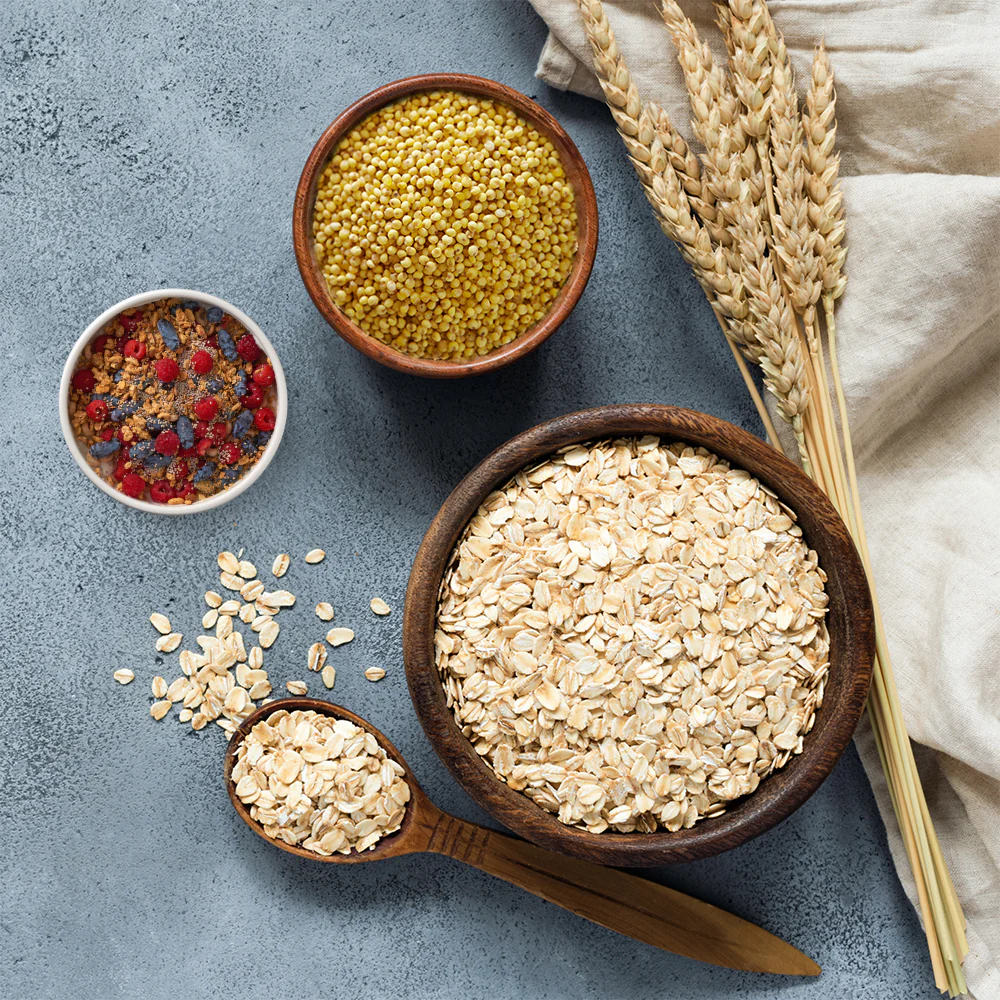
Have you ever had one of those days where your stomach just feels off? Maybe you’re bloated, sluggish, or just not yourself. It happens to everyone. But if it’s a regular thing, your gut might be telling you it needs a little extra care.
A happy gut isn’t just about digestion, it affects energy levels, immunity, and even your mood. If you’ve been wondering how to improve gut health, the good news is that small changes can make a big difference. One of the best ways? Adding millet oats to your diet.
You might not have thought much about them before, but they’re an absolute game-changer for gut health. Let’s dive into why they deserve a spot in your kitchen.
Why You Should Pay Attention to Your Gut Health
Your gut contains trillions of bacteria, both good and bad. When they are in sync, you function optimally. But if something goes awry, you might end up feeling bloated, uncomfortable, and lethargic.
Your diet greatly influences your gut microbiome. The right food choices help good bacteria to thrive, and the wrong ones cause an imbalance. That’s why millet oats are such a beneficial addition to your diet.
What Are Millet Oats?
Millet oats are the product of a combination of two highly nutritious whole grains: millet, which is an ancient grain known for its high fibre and mineral content, and oats, which are famous for their gut-friendly properties.
Combining these grains creates a powerhouse food that is not only gentle on the digestive system but is also gluten-free and full of nutrients.
How Millet Oats Support Gut Health
So, what makes millet oats so special? Here’s why they should be a staple in your diet:
- Helps with Digestion
One of the benefits of oats is their high fibre content, which helps promote healthy digestion and reduces the risk of constipation. For individuals with digestive disorders, millet oats can be particularly beneficial, as they are rich in fibre and support the digestive process.
- Feeds Good Gut Bacteria
Indeed, gut bacteria need good nutrition to perform well. Millet oats already contain prebiotics, which serve as food for the helpful bacteria living in the digestive system. Rich in prebiotics, oats can help minimise bloating and keep digestion regular
- Easy on the Stomach
Certain grains are hard to digest and can cause stomach issues. Millet oats, however, are gentle to your stomach. Feeling heavy after eating wheat? Try millet oats for a change. This simple switch may improve how you feel.
- Gluten-Free and Anti-Inflammatory
Millet oats make an excellent substitute for people who have sensitive digestive systems or prefer to avoid gluten. For a lot of people, reducing gluten improves bloating and digestion, which makes millet oats an excellent option.
- Full of Essential Nutrients
Millet oats provide the body with key vitamins and minerals:
- Magnesium – Aids in maintaining proper muscle and energy function.
- Iron – Essential for oxygen circulation in the body.
- B Vitamins – Help convert food into energy.
- Antioxidants – Help in reducing inflammation and improving health.
Eating millet oats is not just about improving gut health, it is also about nutritive health for the whole body.
How to Include Millet Oats in Your Diet
The best thing about millet oats? They’re easy to prepare and work in both sweet and savoury dishes. Here are a few simple ways to add them to your meals:
- Hearty Porridge – Cook with milk or water, add a drizzle of honey, some fruit, and a handful of nuts.
- Smoothie Booster – Blend cooked millet oats into your smoothie for an extra fibre boost.
- Savoury Grain Bowl – Use millet oats as a base, then top with roasted vegetables and a drizzle of olive oil.
- Crunchy Granola – Mix millet oats with nuts, seeds, and a touch of maple syrup, then bake for a delicious snack.
You don’t have to make big changes—just small swaps that make a difference over time.
Other Gut-Friendly Foods to Pair with Millet Oats
Millet oats are amazing, but they work even better when combined with other gut-loving foods. Try adding:
- Yoghurt or kefir – Packed with probiotics to support digestion.
- Leafy greens – Great for fibre and essential nutrients.
- Nuts and seeds – Full of healthy fats that support gut bacteria.
- Lentils and chickpeas – High in fibre and plant-based protein.
Mix and match these foods to create meals that are not only tasty but also great for your gut.
Conclusion
So, next time if you think about how to improve gut health, the answer is to add millet oats to your diet because they are rich in fibre, easy to digest, and packed with nutrients that keep gut bacteria happy. With just a few small changes to your diet, you can have a big impact on digestion, energy levels, and overall health.
At Right Shift, we’re here to support you every step of the way. Our free meal plan creator lets you design meals tailored to your needs, while our free health score assessment gives you valuable insights into your well-being. Plus, our Shift Store is full of resources to help you make informed food choices that align with your goals.
FAQs
- What are the natural ways to enhance gut health?
A healthy diet that includes pre-and probiotics, staying hydrated, stress management, and fibre consumption helps maintain gut health.
2, Can millet oats be eaten daily?
Millet oats are a nutritious choice for daily meals. They are easy to digest, packed with fibre, and support overall gut health.

